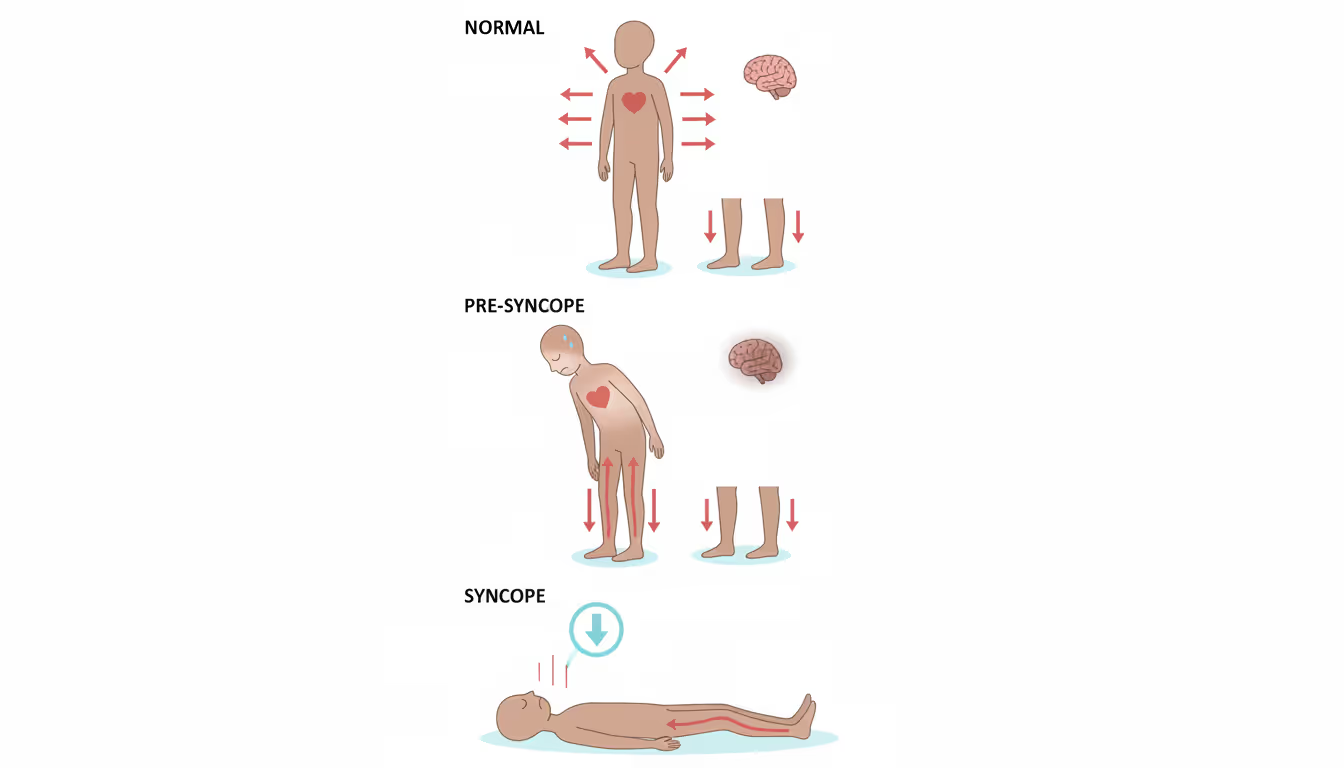
Vasodepressor syncope occurs when a person temporarily loses consciousness, typically in certain situations. This loss of consciousness can happen during events like having blood drawn, straining during urination or bowel movements, or coughing. It can also be triggered by strong emotions such as fear or pain. People experiencing this condition often turn pale and feel nauseated, sweaty, and weak just before fainting.This type of syncope is caused by a reflex in the autonomic nervous system known as the vasovagal reaction. During this reaction, the heart rate slows down (bradycardia), and the blood vessels in the legs widen (dilate). As a result, the heart pumps less blood, causing a drop in blood pressure, which leads to more blood pooling in the legs rather than reaching the brain. This lack of oxygen to the brain results in fainting.The vasovagal reaction is also referred to as a vasovagal attack, and vasodepressor syncope is also known as neurocardiogenic syncope, vasovagal syncope, or simply fainting.




